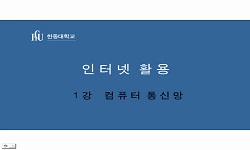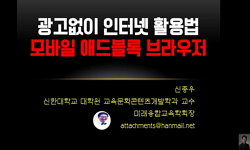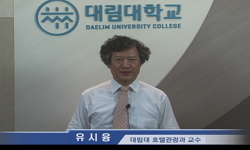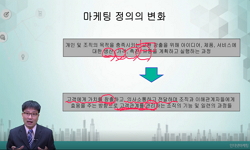사회주의 국가들은 '인터넷 딜레마'에 직면해 있다. 한편으로는 인터넷을 통한 정치적 위협으로부터 체제를 보호하기 위해 유해한 인터넷 정보의 유통과 이용을 통제해야 하고, 다른 한편으...
http://chineseinput.net/에서 pinyin(병음)방식으로 중국어를 변환할 수 있습니다.
변환된 중국어를 복사하여 사용하시면 됩니다.
- 中文 을 입력하시려면 zhongwen을 입력하시고 space를누르시면됩니다.
- 北京 을 입력하시려면 beijing을 입력하시고 space를 누르시면 됩니다.
https://www.riss.kr/link?id=A76125890
- 저자
- 발행기관
- 학술지명
- 권호사항
-
발행연도
2006
-
작성언어
Korean
- 주제어
-
등재정보
KCI등재
-
자료형태
학술저널
- 발행기관 URL
-
수록면
291-313(23쪽)
-
KCI 피인용횟수
13
- 제공처
- 소장기관
-
0
상세조회 -
0
다운로드
부가정보
국문 초록 (Abstract)
사회주의 국가들은 '인터넷 딜레마'에 직면해 있다. 한편으로는 인터넷을 통한 정치적 위협으로부터 체제를 보호하기 위해 유해한 인터넷 정보의 유통과 이용을 통제해야 하고, 다른 한편으로는 체제선전이나 경제적 이익을 얻기 위해 인터넷의 활용과 성장을 촉진해야 하기 때문이다.
본 연구는 중국ㆍ베트남ㆍ쿠바 등의 인터넷 통제전략 분석을 통해 사회주의 국가들의 인터넷 딜레마와 인터넷 전략의 진화과정을 분석하고 있다. 사회주의 국가에서 인터넷은 과거의 전통적 미디어 통제의 유산을 바탕으로 기존의 정치권력을 강화시키는 방식으로 설계되어 이용되고 있다. 사회주의 국가들은 정치적 통제와 경제적 활용 사이에서 실용주의적인 이중적 인터넷 전략을 채택하고 있으며, 인터넷 통제를 더욱 확고히 하기 위한 법률적ㆍ기술적 수단들은 발전을 거듭하고 있다. 특히 베트남이나 쿠바 등의 후발국가들은 중국으로부터 효과적인 통제전략을 모방하거나 학습하면서 인터넷 통제 메커니즘을 진화시켜 가고 있다. 인터넷 통제에 대한 이런 사례들이 비민주주의 체제들 사이에서 나타나는 일반적 경향을 대표한다고는 할 수 없지만, 향후 다른 권위주의 국가들의 인터넷 전략의 방향성을 전망하는 지침이 될 수 있을 것이다.
다국어 초록 (Multilingual Abstract)
The Internet poses a dilemma of choice to socialist states. On one hand, they have to control the use and dissemination of information on the Internet which is potentially harmful to the stability of their regimes. On the other hand there is a need to...
The Internet poses a dilemma of choice to socialist states. On one hand, they have to control the use and dissemination of information on the Internet which is potentially harmful to the stability of their regimes. On the other hand there is a need to promote practical use of the Internet in order to get across political propaganda and bring in economic benefits. Therefore, the Internet in these states is the object of both aggressive utilization and strong control. This paper examines the actual conditions of the Internet control in China, Vietnam, and Cuba, and analyzes the development and evolution process of the Internet strategies of socialist states.
According to the study, socialist states use the Internet on the basis of historical legacy which controlled the traditional media in the past in order to strengthen the existing political authority. They have a pragmatic dual approach to the Internet strategy between political controls and economic usages;they are enforcing institutional and technological constraints on the Internet Use. While these cases of the Internet control are not necessarily representative of a general trend among non-democratic regimes, they do illustrate a direction in which other states may move in the future as they seek to emulate these successful examples of the Internet control.
목차 (Table of Contents)
- 논문요약
- Ⅰ. 서론
- Ⅱ. 사회주의 국가의 인터넷 딜레마와 인터넷 전략
- Ⅲ. 사회주의 국가들의 인터넷 전략과 통제 메커니즘
- Ⅳ. 사회주의 국가들의 인터넷 전략의 특성과 진화과정
- 논문요약
- Ⅰ. 서론
- Ⅱ. 사회주의 국가의 인터넷 딜레마와 인터넷 전략
- Ⅲ. 사회주의 국가들의 인터넷 전략과 통제 메커니즘
- Ⅳ. 사회주의 국가들의 인터넷 전략의 특성과 진화과정
- Ⅴ. 결론
- 참고문헌
- 영어초록
동일학술지(권/호) 다른 논문
-
- 한국정치학회
- 박홍규(Park Hong-Kyu)
- 2006
- KCI등재
-
- 한국정치학회
- 김성호(Sung Ho Kim)
- 2006
- KCI등재
-
- 한국정치학회
- 박성우(Sung-Woo Park)
- 2006
- KCI등재
-
- 한국정치학회
- 김희강(Hee-kang kim)
- 2006
- KCI등재
분석정보
인용정보 인용지수 설명보기
학술지 이력
| 연월일 | 이력구분 | 이력상세 | 등재구분 |
|---|---|---|---|
| 2020 | 평가예정 | 계속평가 신청대상 (등재유지) | |
| 2015-01-01 | 평가 | 우수등재학술지 선정 (계속평가) | |
| 2011-01-01 | 평가 | 등재학술지 유지 (등재유지) |  |
| 2009-01-01 | 평가 | 등재학술지 유지 (등재유지) |  |
| 2007-01-01 | 평가 | 등재학술지 유지 (등재유지) |  |
| 2005-01-01 | 평가 | 등재학술지 유지 (등재유지) |  |
| 2002-01-01 | 평가 | 등재학술지 선정 (등재후보2차) |  |
| 1999-07-01 | 평가 | 등재후보학술지 선정 (신규평가) |  |
학술지 인용정보
| 기준연도 | WOS-KCI 통합IF(2년) | KCIF(2년) | KCIF(3년) |
|---|---|---|---|
| 2016 | 0.98 | 0.98 | 1.06 |
| KCIF(4년) | KCIF(5년) | 중심성지수(3년) | 즉시성지수 |
| 1.08 | 1.03 | 1.653 | 0.27 |




 KCI
KCI DBpia
DBpia







